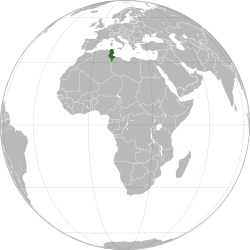Tunisia: Prisoner Compensation Raises Eyebrows
By Magharebia
By Mona Yahia
A proposal to pay recompense to more than 12,000 former political prisoners in Tunisia is facing sharp criticism from political and human rights activists.
Outgoing Finance Minister Houcine Dimassi said July 27th that the bill compensating political prisoners would cost the public budget more than one billion dinars and claimed that it would impact the budget deficit.

The proposal also prompted criticism of the Ennahda-led government online, with some on Facebook accusing the party of stealing the wealth of the state. Most of the former prisoners hail from the ruling Islamist party.
Sami Remedi, an economic and financial expert, said that he would not pay a single penny in taxes to the government if the law were adopted.
Samir Dilou, Minister of Human Rights and Transitional Justice, denied July 30th on Radio Express reports the plan would cost one billion dinars. He noted that the priority of the government was to address unemployment and development, adding that the amount allocated to the compensation would not affect the balance sheets.
Many Ennahda political activists died in the prisons of Ben Ali, while others were tortured, abandoned or fired from their businesses and jobs. The issues of compensation of prisoners, general amnesty and the reinstatement of fired workers were put forward some time ago and have been the subject of disagreements between several parties.
Ennahda considers the issue of compensation above all a moral question relative to those who were persecuted by the system and paid a heavy price for their opposition to Ben Ali.
Justice Minister Noureddine Bhiri said in a press statement that it was the prisoners’ right to be compensated after the former regime destroyed their lives.
Unconvinced, Workers’ Party leader Hamma Hammami, himself a victim of Ben Ali persecution, rejected the principle of compensation. He has stated that while he struggled against Ben Ali, it was not for money or a reward, adding that the real compensation lay in achieving the objectives of the revolution.
However, Mustapha Ben Jaafar, Chairman of the National Constituent Assembly, said July 30th on Radio Shems that the national community was “committed to compensating prisoners who have been exposed to injustices, while at the same time preserving the balance sheets of the state. The issue falls within the framework of transitional justice, and is waiting for a law to regulate it.”
“We must first of all define the concept of the victim. If we want to talk about compensation, we must then compensate every persecuted person such as those who spent years facing unemployment and also the suppression of freedoms – in other words, everyone who was affected by the regime,” commented Rawdha, a university professor.
Journalist Mekki Hlel penned a critical article on his Facebook page saying, “He who was a militant for the sake of the country is not supposed to seek financial compensation, for we have not heard of Mandela or Gandhi, or Jamila Bouhedar or Marwan Barghouti, demanding it.”
“As for those who were militants in the name of religion, God alone would compensate them on judgment day by counting militancy a good deed. Those who became militants to come to power have already reached it, thank God, and that is the best compensation and the best considered response,” he added.
